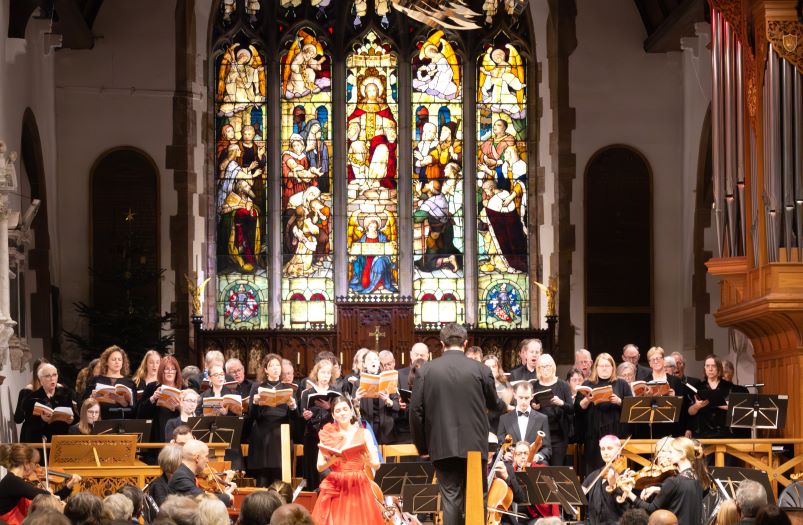
Handel’s Messiah: A Triumph
If you were thinking of where you might experience a standing ovation, perhaps Carnegie Hall in New York would come to mind, or Lord’s Cricket Ground. Those of us who attended this Messiah in St. Dunstan’s Church rightly gave one to the performers at the end of a magnificent evening’s music.
The man at the centre of it all, bringing together three local choirs, a top London-based chamber orchestra and four young vocal soloists, was Conductor Jack Gonzalez-Harding, formerly of Burwash, who will soon be known to a much wider audience. As he demonstrated in his recent harpsichord performance in Mayfield School Chapel of Bach’s Goldberg Variations, Harding has an instinctive feel for Baroque music. This was apparent in every detail, from the way he encouraged the London Mozart Players to shape their parts like a period ensemble to the vivid word-painting that we heard from the Choir. Rhythms were sharp and everything was kept on the move.
The contrast between Theano Papadaki’s Soprano, with its bright colours and cutting edge, and Louisa Stuart-Smith’s Mezzo, all darkness and eloquent expression, was ideal. Tenor Michael Lafferty appeared after an eleventh-hour search for a singer to replace Sebastian Hill, who was ill. He rushed over from Glyndebourne, having missed all the rehearsals, and somehow slotted in perfectly after a slightly hesitant start. George Robarts made the most of the opportunities given to the Bass soloist, bringing a chilling atmosphere to ‘The people that walked in darkness’.
The Messiah is a long work and can have its less uplifting moments. It is of course traditionally performed at Christmas and there lies one of the problems. The most famous sections are found in Part I which tells the story Christ’s birth, ending with the rousing ‘His Yoke is easy and his burden is light’. Part 2 followed after an interval and recounts the events leading up to the Crucifixion. Even in a performance as good as this, it was evident that Handel’s inspiration was not burning as brightly here, until our spirits were restored in the Hallelujah Chorus. Handel’s training as an opera composer shows through in Part 3, as we celebrate the Resurrection with three festive numbers in which trumpets and drums are to the fore. Gonzalez-Harding was in his element here and a packed church responded in the only way possible.
Jonathan Zoob






